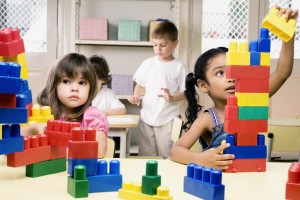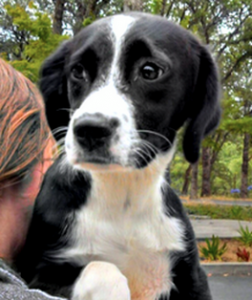|
|
May 5, 2014
 The kind of friends you can be yourself with Since 1997 a big chunk of my email questions have been variations of…
- What do I do if my friend is nice to me sometimes and sometimes mean to me?
- What do I do if my friend is talking behind my back but then when I confront her about it she says she doesn’t know what I’m talking about?
- What do I do if my friend always has to have things his way and when he doesn’t, he gets kinda mean?”
This morning I did a Skype in the Classroom session with 14 and 15 year olds in Croatia. The topic: Real Friends vs the Other Kind. These kids were polite, respectful and appreciative of our time together. Their English was very impressive! What also impressed me were the questions they asked: thoughtful, honest, revealing. Even though they were so far away, they had many of the same concerns and confusions about friendship as the kids who’ve been emailing me for 17 years. Doesn’t matter if the letter writer is 10 or 19. Doesn’t matter if s/he lives in Detroit, London, Singapore or Zaire. It often boils down to this: “Why is my friend not acting like a friend and what can I do about it?”
We each have to learn the difference between a real friend and the other kind. Sometimes those lessons come with a lot of hurt feelings. Maybe we’d suffer less if, when we are young, we could get help setting concrete standards for behavior in a friendship. Parents and teachers could do a much better job helping us understand that when we pay attention to how we feel when we are with people we can trust, then we will know what it’s like to feel safe, respected and appreciated in a friendship. Trusted adults should also help kids understand that friendship is a 2-way street. We have to hold ourselves to the same high standard of real friendship that we hold other people to. And if they are unable or unwilling to treat us the way a real friend should, then we have the right (and the obligation to ourselves) to take a vacation from that friendship and reach out to other people who share our values.
How do we teach kids the difference between real friends and the other kind?” Watch my 3 minute video answer on Vidoyen.

April 15, 2014
 Actually, we’re playing AND learning! In my senior year in college I took a course called “Observation of Young Children.” For several hours a week I sat in a narrow, darkened room, behind a one-way mirror, looking into a pre-school classroom in action. Over the course of the semester I was assigned several 2-4 year olds to “observe” and to keep a log of every single thing the child did, how long he or she engaged in the behavior, etc. Later, I was to write up my detailed conclusions about whatever patterns I observed and what they might indicate about “my kids'” temperament, interests, learning styles, etc.
What I remember most was how seriously these young children took “playtime.” It was clear they were intently busy learning through play.
So in the late ’90s, when I first heard about Baby Einstein, a series of products of the “teach your baby to read” variety, I was skeptical. Babies and young children are in the business of figuring out how the world and everything and everyone they encounter operates. Hands-down, they learn best, with the greatest enthusiasm and retention, through hands-on exploration. (That includes but is not limited to touching, holding, jumping on, crawling through, rolling in, and sticking it in your mouth exploring.)
When I first heard about Brain Insights, my first thought was, “Oh is this another product for helicopter parents who need to chill?” Turns out, happily, it is not. Instead, Brain Insights, founded by early childhood educator, Deborah McNelis, is about understanding your child’s early brain development and using that to support a child’s learning through relaxed play. Bye bye smart apps for over-scheduled toddlers. Hello natural, hands-on parent-child fun!
Listen here to my conversation with Debora McNelis on this week’s Family Confidential podcast.

November 11, 2013
Teaching kids to be good people includes encouraging them to “Share” and “Think of others.” All good, but it’s tough to compete with billions of ad dollars bombarding our children with other encouraging words, like: “Get Mom/Dad to buy you this stuff!”
It’s a hard row. So whenever I discover a project that can nudge a kid’s needle in the direction of Giving vs Getting I do what I can to get the word out.
Houses for Change is one of those gem projects. Check out my interview with Mark Wasserman, founder and director of Houses for Change, an award-winning educational crafts project for kids to raise awareness of homelessness and raise funds to help homeless families. It is a national campaign that answers the question, “What can I do to help?” This is a brilliantly simple idea with easy peasy implementation which teaches kids about philanthropy and the power each of us has to do good in the world. We’re all onboard for that kind of education, right?
Happy Holidays!

October 23, 2013
 I seriously need a friend. Kids and teens can view of themselves as powerless in a world where adults call all the shots. But that’s not the whole story. Kids have power. And every day, your children and mine get opportunities to use that power to do good or to do harm. Sometimes, turning a blind eye and choosing to do nothing results in more harm.
If we, truly value kindness and appreciate it when it comes our way, we can’t ignore suffering. We’ve got to do our part to keep kindness alive… every chance we get. And we’ve got to teach our kids to be kind. But how?
Child or adult, it takes extra social courage to exit our comfort zone and to help a vulnerable person. When kids ask me about standing up for someone who is being harassed, I tell them they should never put themselves directly in harm’s way. But I make it clear that there are many ways to help an underdog and let him or her know: “I’m not like the others who are giving you a hard time. I’m here to help.”
Fuel for Thought (for adults) —At different times we have all been underdog, top dog, and middle of the pack dog, so we know what it feels in each of those places. Being on the bottom, without support, can be terribly lonely. Think about a time when you felt like an underdog. Where did you turn for support? What response did you get? Think of a time when you helped an underdog. What happened?
Conversations That Count (with kids)– Talk about the concept of a “pecking order” amongst animals and humans. Say this to your children: “Most of the time, when we’re not on the bottom, we don’t give much thought to those who are.” Now ask your kids what they think about that. True? Not true? How do you know? Talk about who is “on the bottom” in your child’s class. (Even kids as young as second or third grade have a keen awareness of social strata.) How do other people treat that child? How do you treat that child? What might happen if you stood up for the underdog?
Teach—Challenge your child to be a hero and shake up the social strata at school by standing up for someone who needs a friend. Follow up and find out from your child what happened with the challenge.
Please let me know how you teach your kids about the importance of standing up for the underdog.

| |














